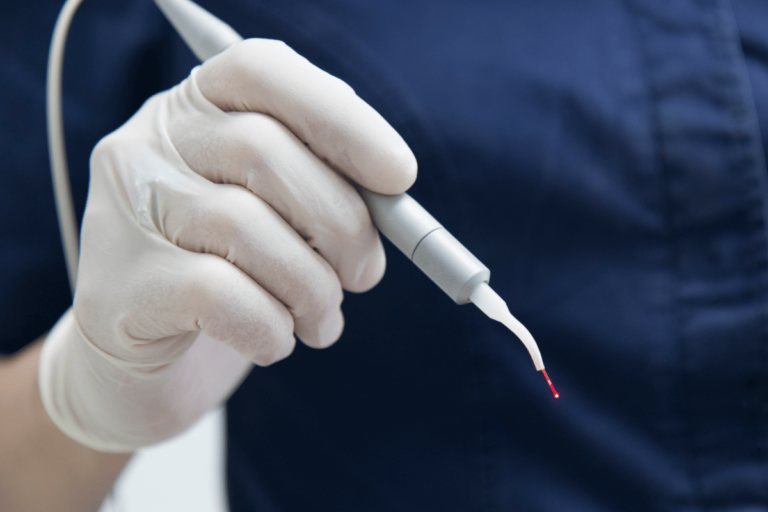Hormone Replacement Therapy (HRT): Balancing Health and Hormones
When considering Hormone Replacement Therapy (HRT), it's important to strike a delicate balance between maintaining health and harmonizing hormone levels. The journey of exploring HRT involves understanding the benefits and risks associated with this treatment, as well as investigating the various options available and considering how lifestyle factors can impact its effectiveness. As you immerse yourself in the world of HRT, the intricate interplay between health and hormones unfolds, prompting a deeper examination of its implications on your well-being.
Key Takeaways
- HRT improves quality of life by regulating hormone levels.
- Understanding hormonal imbalances is crucial for effective treatment.
- Lifestyle factors like diet and exercise impact HRT effectiveness.
- Health assessments and monitoring optimize HRT outcomes.
- Discuss risks, benefits, and preferences with healthcare providers for personalized HRT plans.
Benefits of Hormone Replacement Therapy
Improving overall quality of life, Hormone Replacement Therapy (HRT) offers a range of benefits for individuals experiencing hormonal imbalances. Hormone optimization through HRT can help regulate imbalanced hormone levels, restoring them to more advantageous levels. This regulation is particularly beneficial for individuals experiencing symptoms such as fatigue, weight gain, mood swings, and low libido due to hormonal fluctuations. By optimizing hormone levels, HRT can improve energy levels, enhance mood stability, aid in weight management, and boost libido, ultimately contributing to an overall sense of well-being.
Furthermore, hormone regulation through HRT can also have a positive impact on cognitive function. Hormones play an important role in brain health, affecting memory, focus, and cognitive processing. By restoring hormonal balance, HRT can potentially enhance cognitive abilities, including memory retention and mental clarity. This aspect of hormone optimization underscores the potential cognitive benefits of HRT for individuals experiencing hormonal imbalances.
Risks Associated With HRT
While Hormone Replacement Therapy (HRT) offers various benefits in managing hormonal imbalances, it's essential to take into account the associated risks. One significant risk is the potential for hormone regulation disruptions. When undergoing HRT, the introduction of external hormones can interfere with the body's natural hormone production and regulation processes. This interference may lead to imbalances that could have adverse effects on various bodily functions.
Moreover, another risk to bear in mind is the possibility of hormone fluctuations. Depending on the type of HRT and individual responses, hormone levels may fluctuate erratically, causing mood swings, bloating, breast tenderness, and other discomforts. These fluctuations can also increase the risk of developing conditions such as blood clots, strokes, and breast cancer, especially in individuals predisposed to these conditions.
Understanding these risks associated with HRT is important for making informed decisions about hormone therapy. Consulting with healthcare providers and closely monitoring hormone levels can help mitigate these risks and ensure the safe and effective management of hormonal imbalances.
Types of Hormone Replacement Options
Various hormone replacement options are available to address different hormonal imbalances in individuals seeking therapeutic interventions. When contemplating hormone replacement therapy (HRT), it's vital to explore the various alternatives and methods tailored to individual needs.
Here are some options to ponder:
- Bioidentical Hormones: These hormones have a molecular structure identical to the hormones naturally produced by the body, potentially reducing the risk of adverse effects.
- Synthetic Hormones: While not identical to human hormones, synthetic hormones are commonly used in traditional HRT to address hormonal imbalances.
- Pellet Therapy: This method involves implanting hormone pellets under the skin, providing a slow release of hormones over time.
- Topical Creams: Creams containing hormones can be applied to the skin for absorption, offering a convenient administration route.
Considering natural alternatives and undergoing hormone testing can help determine the most suitable hormone replacement option for your specific needs. Discussing these choices with a healthcare provider is essential to make well-informed decisions regarding hormone replacement therapy.
Understanding Hormonal Imbalances
Understanding Hormonal Imbalances is essential for identifying the root causes of health issues related to hormone levels. Hormones play a significant role in various bodily functions, and their regulation is a delicate balance. Hormonal regulation is a complex process involving feedback loops between glands and organs. Hormone fluctuations can occur due to factors such as stress, diet, exercise, and medical conditions. These fluctuations can lead to symptoms like fatigue, weight gain, mood swings, and reproductive issues.
To explore further into the intricacies of hormonal imbalances, let's examine a table highlighting key aspects:
| Aspect | Description | Importance |
|---|---|---|
| Hormonal Regulation | Involves the control and balance of hormone levels | Essential for overall health |
| Hormone Fluctuations | Natural variations in hormone levels | Impact on bodily functions |
| Factors Influencing | Stress, diet, exercise, medical conditions | Understanding root causes of imbalances |
Understanding these aspects of hormonal imbalances is crucial for healthcare professionals to diagnose and treat hormone-related health issues effectively.
Factors Influencing HRT Decisions
When considering Hormone Replacement Therapy (HRT), it's essential to assess the associated health risks meticulously. Personalized treatment plans can greatly impact the effectiveness and safety of HRT for individuals.
Consulting with specialists in endocrinology or gynecology can provide valuable insights and guidance in making informed decisions about HRT.
Health Risks Assessment
An essential aspect in determining the suitability of Hormone Replacement Therapy (HRT) involves carefully evaluating the individual's health risks and considering factors that influence the decision-making process.
When evaluating health risks for HRT, several key considerations come into play:
- Current Hormone Levels: Understanding the individual's current hormone levels is vital in determining the appropriate course of HRT.
- Existing Health Conditions: Pre-existing health conditions such as cardiovascular disease, diabetes, or a history of certain cancers can impact the risks associated with HRT.
- Age and Menopausal Status: Age and menopausal status play a significant role in evaluating health risks related to HRT.
- Lifestyle Factors: Lifestyle choices including diet, exercise, smoking, and alcohol consumption can influence the overall health risks associated with HRT.
Personalized Treatment Plans
To optimize Hormone Replacement Therapy (HRT) outcomes, the formulation of personalized treatment plans hinges on a meticulous consideration of various factors that influence HRT decisions. Taking an individualized approach is essential in hormone optimization to tailor the treatment to specific needs and maximize benefits while minimizing risks. Factors such as age, medical history, symptoms, and lifestyle play a pivotal role in determining the most suitable HRT regimen.
| Factors Influencing HRT Decisions | Description | Importance |
|---|---|---|
| Age | Younger vs. older patients | Impact on hormone levels |
| Medical History | Existing conditions | Risk of complications |
| Symptoms | Severity and type | Targeted symptom relief |
| Lifestyle | Diet, exercise, habits | Influence on hormone balance |
Consultation With Specialists
Specialists play an important role in guiding Hormone Replacement Therapy (HRT) decisions by providing expert insights based on individual health profiles and treatment goals. Seeking consultation with specialists can greatly impact the success of your HRT journey.
Here are some key aspects to ponder when consulting with specialists:
- Specialist Expertise: Specialists, such as endocrinologists or gynecologists, possess specialized knowledge in hormonal health, ensuring you receive tailored recommendations.
- Comprehensive Health Assessment: Specialists conduct thorough evaluations of your health status, including hormone levels and medical history, to determine the most suitable treatment approach.
- Exploration of Treatment Options: Specialists discuss various HRT options available, taking into account factors like risks, benefits, and your preferences to customize a treatment plan.
- Long-term Monitoring and Adjustments: Specialists monitor your progress closely, making necessary adjustments to optimize treatment effectiveness and address any emerging concerns.
Monitoring Hormone Levels During HRT
Regularly monitoring hormone levels during hormone replacement therapy (HRT) is vital for optimizing treatment effectiveness and minimizing potential risks. Hormone testing allows healthcare providers to assess the current hormone levels in the body and make necessary adjustments to the HRT regimen. Through monitoring, healthcare professionals can guarantee that hormone levels are within the target range, avoiding both under and over-replacement, which can lead to undesirable outcomes.
Optimizing hormone levels through consistent monitoring is essential for achieving the desired therapeutic effects of HRT. By tracking hormone levels over time, healthcare providers can make informed decisions regarding dosage adjustments to better align with individual needs. This personalized approach helps in tailoring treatment to each person, enhancing the overall benefits of HRT while reducing the likelihood of adverse effects.
Lifestyle Considerations for HRT
When contemplating Hormone Replacement Therapy (HRT), it's essential to address lifestyle factors that can impact its effectiveness.
Diet plays a significant role in hormone balance, with specific nutrients influencing hormone production and regulation.
Regular exercise has been shown to complement HRT by supporting overall health and optimizing hormone levels.
Diet for Hormone Balance
How can dietary choices impact hormone balance and complement Hormone Replacement Therapy (HRT) for best health outcomes? Nutritional support plays an essential role in maintaining hormone regulation and optimizing the benefits of HRT. Here are some key dietary considerations to enhance hormone balance:
- Balanced Macronutrients: Ensuring a diet rich in proteins, healthy fats, and complex carbohydrates can support hormone production and overall health.
- Micronutrient-Rich Foods: Consuming a variety of fruits, vegetables, and whole grains provides essential vitamins and minerals important for hormone synthesis and function.
- Omega-3 Fatty Acids: Including sources of omega-3s such as fatty fish, flaxseeds, and walnuts can help reduce inflammation and support hormone balance.
- Limiting Processed Foods: Minimizing intake of processed foods and added sugars can help prevent spikes in blood sugar levels, which can impact hormone levels negatively.
Exercise and HRT
Dietary choices play a significant role in hormone balance, and similarly, integrating an appropriate exercise regimen can further optimize the effectiveness of Hormone Replacement Therapy (HRT) for improved health outcomes. Exercise benefits extend beyond physical fitness; they also impact hormone regulation. Regular physical activity can help regulate insulin levels, reduce cortisol (the stress hormone), and increase the production of endorphins, which are known as the body's natural painkillers. These effects of exercise can complement the goals of HRT by promoting overall well-being and potentially reducing the severity of menopausal symptoms.
Engaging in activities like aerobic exercise, strength training, or yoga can positively influence hormone levels and contribute to a better response to HRT. For example, cardiovascular workouts can enhance blood circulation, aiding in the distribution of hormones throughout the body. Strength training exercises can help maintain muscle mass, which is pivotal for supporting metabolic health during hormonal changes. Incorporating exercise into your routine while undergoing HRT can lead to a more balanced hormonal profile and improved overall health.
Potential Side Effects of Hormone Therapy
Potential side effects of hormone therapy may include an increased risk of blood clots and breast cancer. Hormone replacement therapy (HRT) can have various effects on the body. Here are some potential side effects to be aware of:
- Increased Risk of Cardiovascular Disease: Some studies suggest that HRT may elevate the risk of heart disease and stroke.
- Mood Changes: Hormone therapy can sometimes lead to mood swings, depression, or anxiety.
- Breast Tenderness: Women undergoing HRT may experience breast tenderness or swelling.
- Digestive Issues: Hormone therapy can sometimes cause bloating, nausea, or other digestive problems.
It is essential to discuss these potential side effects with your healthcare provider before starting hormone therapy. Monitoring your symptoms and keeping track of any changes can help in managing the effects of HRT. If you experience severe or concerning side effects, don't hesitate to seek medical advice promptly. Hormone therapy is a personalized treatment, and understanding the potential risks is vital in making informed decisions about your health.
Hormone Replacement Therapy and Long-term Health
In considering the long-term implications of Hormone Replacement Therapy (HRT) on health outcomes, it's essential to evaluate the cumulative effects of this treatment method over an extended period. The duration of HRT can have a substantial impact on its benefits and risks. Studies suggest that short-term use of HRT may provide relief from menopausal symptoms and reduce the risk of osteoporosis and colorectal cancer.
However, prolonged HRT use, especially beyond five years, has been associated with an increased risk of breast cancer, heart disease, and stroke. The effects of HRT duration on health outcomes are complex and vary depending on factors such as age, health status, and hormone type.
Balancing the benefits and risks of long-term hormone replacement therapy requires careful consideration and individualized decision-making. Regular monitoring and discussions with healthcare providers are crucial to assess the ongoing need for HRT and adjust treatment plans as necessary. Understanding the effects of HRT duration on long-term health is vital for making informed choices regarding hormone replacement therapy.
Conclusion
To sum up, hormone replacement therapy (HRT) can be compared to a balancing act, where the benefits of restored hormonal balance must be carefully weighed against potential risks.
By actively engaging with healthcare providers, understanding the options available, and monitoring hormone levels regularly, individuals can optimize the effectiveness of HRT while minimizing adverse effects.
Remember, like a skilled tightrope walker, managing the complexities of HRT requires precision and attention to detail for long-term health and well-being.







